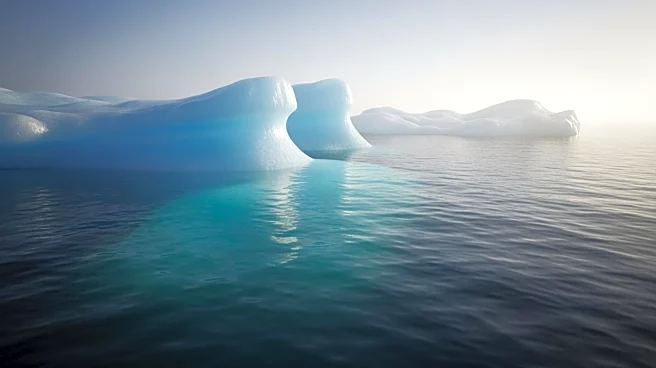What's Happening?
New research reveals that warmer Atlantic water from near Greenland is heating the depths of the Arctic Ocean, previously thought to be less affected by climate change. The study shows that the Eurasian basin's deep waters have warmed significantly since
1990, driven by changes in the Atlantic Meridional Overturning Circulation and the influx of freshwater from Greenland's melting ice sheet. This warming could impact sea ice melt and sub-sea permafrost, with potential consequences for methane release.
Why It's Important?
The warming of the Arctic Ocean's depths highlights the far-reaching impacts of climate change, affecting regions previously considered stable. This process could accelerate sea ice melt and contribute to global warming through methane release from thawing permafrost. Understanding these dynamics is crucial for predicting future climate scenarios and developing strategies to mitigate their effects. The findings underscore the interconnectedness of global climate systems and the need for comprehensive monitoring and research.
Beyond the Headlines
The study raises concerns about the potential for rapid changes in the Arctic environment, with implications for global climate patterns and ecosystems. The warming of deep ocean waters could alter marine habitats and biodiversity, affecting species reliant on cold-water environments. Additionally, the research highlights the importance of international collaboration in addressing climate change, as the Arctic's dynamics have global repercussions. As the region continues to warm, understanding these processes will be essential for developing effective conservation and adaptation strategies.















